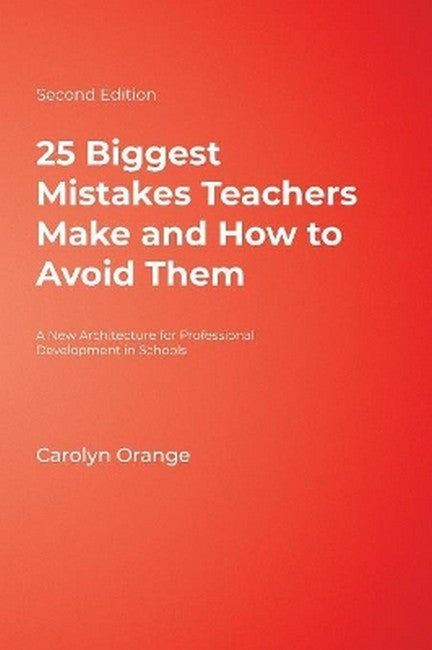Carolyn Orange is Professor of Educational Psychology at the University of Texas at San Antonio. She teaches Psychological Basis of Learning, Learning and Development of the School Age Child, Human Growth and Development, and Psychology of Human Motivation. She has a PhD and Master of Arts degree in Educational Psycho logy from Washington University and a Bachelor of Arts degree from Harris Stowe State College. She began her teaching career in the St. Louis Public Schools where she taught for a number of years. Her work as an educator has spanned about 25 years. That period includes some time that she worked for two corporations. She has worked as a researcher and educator in a variety of educational settings: elementary, secondary, English as a Second Language (ESL), Montessori, special education, adult education, art, and higher education. She has produced a video on self-regulation and has developed a Self-Regulation Inventory. She has published numerous articles in journals such as the Journal of Adolescent and Adult Literacy, The Journal of Experimental Education, The Roeper Review, Journal of Communi-cations and Minority Issues, The Journal of Black Studies, The NASSP: Curriculum Report, and The High School Journal. In 2001, she was appointed to the review board of the Journal of Communications and Minority Issues. She is on the Board of Directors for the Girl Scout Council of San Antonio. She was included in Who's Who in the World for 2005; Who's Who Among American Teachers for 1996, 1998, 2000, 2002, and 2003; Who's Who in America 2001, 2002, and 2003/2004. Her current research interests are envirosocial factors that affect student achievement. She is the author of 25 Biggest Mistakes Teachers Make and How to Avoid Them (2000) and Quick Reference Guide to Educational Innovations: xiv FM-Orange.qxd 11/12/2004 4:21 PM Page xv About the Author xv Practices, Programs, Policies and Philosophies (2002). 25 Biggest Mistakes Teachers Make and How to Avoid Them is a bestseller and has gained worldwide popularity. It has been reviewed in India and translated into Thai, Chinese, and Slovenian. She was inducted into the San Antonio Women's Hall of Fame in 2004.
Request Academic Copy
Please copy the ISBN for submitting review copy form
Description
Foreword Preface to the Second Edition Acknowledgments About the Author Introduction Part I. Discipline 1. Mistake 1: Inappropriate Discipline Strategies 2. Mistake 2: Physical Aggression 3. Mistake 3: Purposeful Alienation 4. Mistake 4: Public Ridicule Part II. Teacher-Student Relations 5. Mistake 5: Favoritism 6. Mistake 6: Physiological Discrimination 7. Mistake 7: Personal Attacks 8. Mistake 8: Inappropriate Teacher-Student Relationships 9. Mistake 9: Deliberate Mistreatment 10. Mistake 10: Racial and Cultural Differences 11. Mistake 11: Humiliation Part III. Classroom Policies and Practices 12. Mistake 12: Inappropriate Classroom Policies 13. Mistake 13: Inappropriate Toileting Practices Part IV. Classroom Management and Instruction 14. Mistake 14: Inappropriate Educational Strategies 15. Mistake 15: Inappropriate Assessment Part V. Personality and Professionalism 16. Mistake 16: Teacher Insensitivity 17. Mistake 17: Academic Shortcomings 18. Mistake 18: Poor Administration 19. Mistake 19: Teacher Reputation 20. Mistake 20: Teacher Misjudgment Part VI. Teaching Style and Behavior 21. Mistake 21: Teacher Bias or Expectations 22. Mistake 22: Unethical Behavior 23. Mistake 23: False Accusations 24. Mistake 24: Inappropriate Reactions 25. Mistake 25: Sexual Harassment Part VII. Teacher Confessions of Worst Treatment of a Child: Their Motives and Feelings Epilogue References Index
"This book will make you laugh, make you shake your head in disbelief, and keep you amazed. Most important, this book will help you become a more enlightened and effective educator as you gracefully sidestep difficult situations by remembering the practical lessons within these pages." -- Jennifer Brooks, Fourth-Grade Teacher "Examines and creates awareness of the social and psychological implications of teachers' responses to students. The author provides real-life scenarios and purposeful commentaries addressing these interactions." -- Anissa Pennick, Counselor "I was able to reflect on my own teaching experience and actions, which resulted in a conscious effort to be more positive with my students." -- Nicole D. Anderson, Second-Grade Teacher

